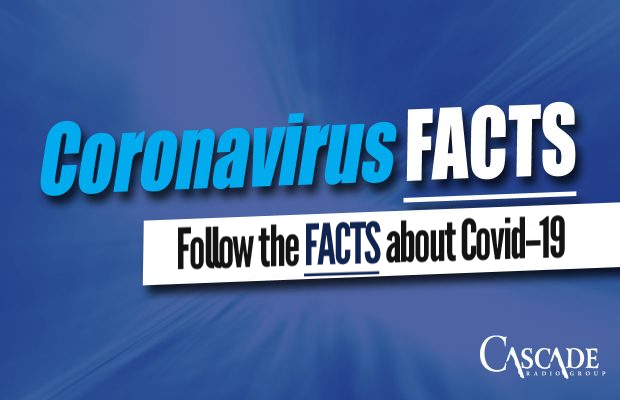For COVID-19 community information, closings, and resources, click here.
When you hear the words “COVID Pandemic,” “Coronavirus,” and “National Emergency,” you can get an uneasy feeling. That’s why we want to use knowledge and common sense to combat this virus to protect ourselves, our families, our neighbors, and those in our community that may be at a higher risk.
The Centers for Disease Control and Protection, also known as “CDC,” and the World Health Organization, also known as “WHO,” have been working to help stop the spread of this new virus that was discovered in December 2019.
According to the CDC and WHO, the most common symptoms of COVID-19 include:
-Fever
-Cough
-Shortness of breath
Other symptoms may include:
-Aches & pains
-Nasal congestion
-Runny nose
-Sore throat
-Diarrhea
Most people recover from the disease without needing any special treatment. However, around 1 out of 6 people who get COVID-19 can become seriously ill. Older people, and those with underlying medical conditions like diabetes, high blood pressure, or heart problems, are more likely to develop serious illness.
You can take simple steps to help stop the spread of COVID-19.
-Social distancing. The best way to stop the spread of the disease is to avoid being exposed. You should avoid public gatherings with large groups. When you are with others, avoid close contact by maintaining a distance of 6 feet from others.
-Practice good hygiene. Wash your hands thoroughly and often. Use soap and water for at least 20 seconds.
-If soap is unavailable, use hand sanitizers that contain at least 60% alcohol.
-Avoid touching your eyes, nose, mouth, and face with unwashed hands.
-If you’re sick, or not feeling well, stay home to avoid infecting others.
-When you cough or sneeze, cover up. Use a tissue, or the inside of your elbow, to cover your mouth and nose. And, wash your hands after you cough or sneeze.
–Clean and disinfect surfaces that are frequently touched often. Surfaces could include counters, desks, faucets, door handles, keyboards, etc. If you’re using a disinfectant, check the instructions to make sure you let it sit and disinfect long enough.
The spread of COVID-19 and efforts to socially distance have caused a lot of closures, cancellations, and postponements to businesses, schools, churches, restaurants, etc. The best rule is to call before you go to see if something is open or happening. In the state of Washington, Gov. Jay Inslee has set some guidelines for what businesses may be open or closed in an effort to socially distance.
Here’s an inforgraphic with more information, posted on Gov. Inslee’s Facebook page.
Here’s a list of Pacific Northwest closures that we’ve been made aware of.
If you’re looking for more information, check out these resources:
The Centers for Disease Control & Prevention COVID-19 page
The World Health Organization COVID-19 Page
The Washington State Department of Health has established a call center for more information at 1-800-525-0127. Phone lines are staffed 7 days a week from 6am-10pm.
Information on this page is according to the resources linked from WHO and CDC.






